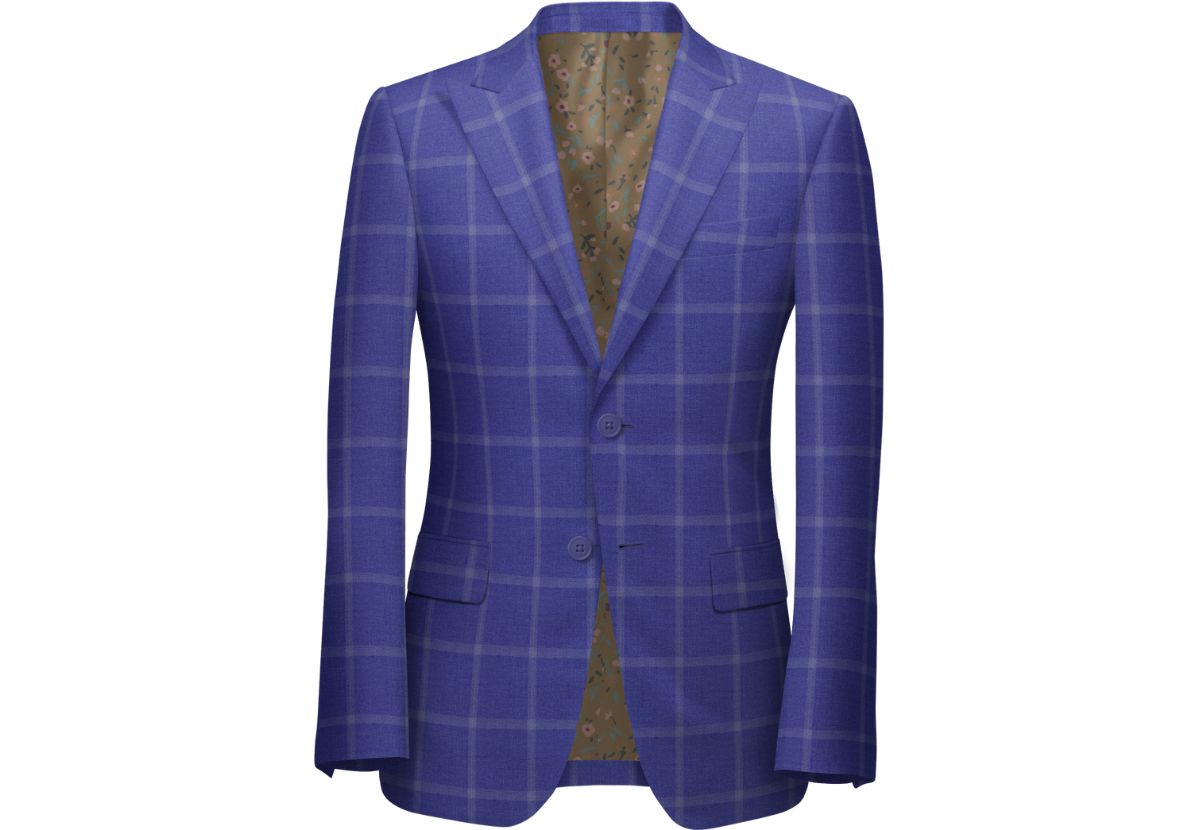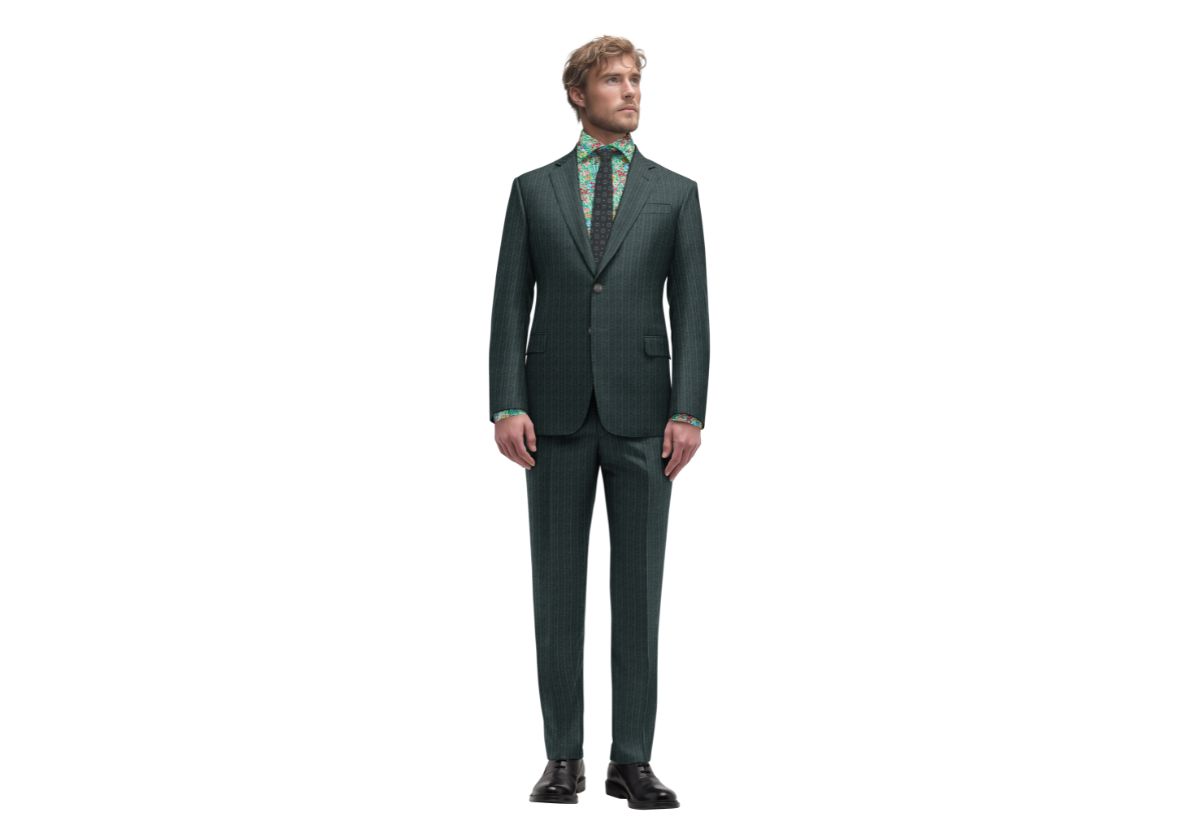Welcome to Shirtsmockup.com Online Apparel PSD Mockup Shopping Store!
Few items are as iconic and versatile in men's and women's fashion as blazers and suit jackets. Yet many people wonder about the difference between these two essential wardrobe pieces. Are they interchangeable? Do they serve different purposes?
This blog post will explore the key differences between blazers and suit jackets. We'll provide a detailed comparison, highlight the pros and cons of each, and help you decide which is right for you. Our goal is to make this topic easy to understand, even if fashion isn't your forte.
Sure, here’s a comparison table between a blazer and a suit jacket:
Feature | Blazer | Suit Jacket |
|---|---|---|
| Origins and Use | Nautical and sporting heritage; versatile for semi-formal and casual settings | Formal/business heritage; worn in formal or business settings |
| Design and Features | Often features metal buttons and patch pockets; variety of fabrics; more structured than casual jackets but less so than suit jackets | Tailored fit with structured shoulders; matching buttons and pockets; typically more structured |
| Pairing Options | Designed to be worn with non-matching trousers like chinos or jeans | Worn with matching trousers made from the same fabric and color |
| Color and Patterns | Wide range of colors and patterns; classic colors include navy, black, and gray | Classic, subdued colors like black, navy, and gray; conservative patterns like pinstripes or checks |
| Versatility | Highly versatile, suitable for a wide range of occasions | Less versatile, reserved for formal or business events |
| Fit and Structure | Can be less structured and more relaxed | More fitted and structured for a polished look |
| Typical Fabrics | Wool, linen, cotton, and more | Usually finer fabrics like wool or blends for a formal appearance |
| Button Style | Often metal or contrasting buttons | Matching buttons that blend with the fabric |
This table highlights the key differences and uses for blazers and suit jackets, making it easier to understand when and how to wear each one.
The difference between a blazer and a suit jacket can seem subtle, but understanding these nuances can significantly elevate your fashion game.
Fabric and Material
Blazers: Blazers are often crafted from a variety of fabrics, including wool, cotton, and blends. They can also come in a wide range of colors and patterns, making them incredibly versatile and suitable for various occasions. For instance, a cotton blazer might be perfect for a summer outing, while a wool blazer can add extra warmth and sophistication during the cooler months.
Suit Jackets: Suit jackets, on the other hand, are usually made from finer wool and are specifically designed to match suit trousers. The fabric is often more luxurious and formal, intended for business or formal events. High-quality suit jackets may even include a slight sheen, adding an extra level of elegance to the overall ensemble.
Button Styles
Blazers: Blazers frequently feature metal or contrasting buttons, which add a touch of uniqueness and casual flair to the jacket. These buttons range from brass and silver to more decorative options, giving the blazer a slightly more relaxed appearance. This detail makes blazers ideal for smart-casual settings where a full suit might feel too formal.
Suit Jackets: Suit jackets typically have covered or matching buttons, contributing to a cohesive and polished look suitable for formal settings. The buttons are often designed to blend seamlessly with the fabric of the jacket, creating a smooth, uninterrupted line that enhances the suit’s overall sophistication.
Patterns and Colors
Blazers: Blazers can come in an array of patterns, including checks, stripes, and solids. This diversity allows for a broader range of styling options. For example, a checkered blazer can add a dash of personality to an outfit, while a solid color can keep the look classic and understated. The variety in patterns and colors means that blazers can easily transition from day to night, fitting into both professional and social settings.
Suit Jackets: Suit jackets are generally solid in color and designed to create a seamless look when worn with matching pants. Uniformity in color and pattern is key for maintaining a formal appearance, whether you’re attending a business meeting or a black-tie event. The simplicity of a suit jacket’s design ensures that it complements dress shirts and ties without overwhelming the overall look.
By paying attention to these details, you can make more informed choices about when and how to wear each type of jacket, ensuring that you always look your best.
A blazer is a type of jacket that originated from rowing clubs in 19th-century England. It was initially designed for sporting events and casual gatherings but has since evolved into a versatile piece for both men and women, suitable for a variety of occasions. Over the years, blazers have transcended their sporty origins to become fashion staples, appreciated for their ability to add a touch of sophistication to almost any outfit.

Versatility
Blazers are incredibly versatile. They can be dressed up with a tie and dress shoes for a business meeting or an evening out or dressed down with jeans and sneakers for a more casual look. This adaptability makes them a valuable addition to any wardrobe, capable of transitioning seamlessly from day to night.
Comfort
Blazers are generally less structured and more comfortable than traditional suit jackets. They often feature softer fabrics and a more relaxed fit, making them perfect for days when you want to look stylish but not overly formal. This comfort does not come at the expense of style, as blazers still provide a polished appearance without the rigidity of a full suit.
Variety
Blazers come in many fabrics, colors, and patterns, ranging from classic navy wool to vibrant linen and even corduroy. This variety makes it easy to find one that suits your style and the specific demands of different seasons. Whether you prefer a timeless look or something more contemporary, there is a blazer out there for you.
Less Formal
Blazers are not suitable for very formal occasions like black-tie events, where a tuxedo or a more traditional suit would be expected. Their versatility is a double-edged sword; while they work well in many scenarios, they can fall short in strictly formal settings.
Limited Matching
Because they often have contrasting buttons and distinct patterns, blazers can sometimes be harder to pair with other pieces in your wardrobe. This can limit their utility if your clothing collection does not include complementary items, requiring careful consideration to avoid clashing outfits.
Casual Perception
In some professional settings, a blazer is too casual. Before opting for a blazer, it's important to know your environment and understand the dress code expectations. While they are perfect for business casual environments, they might need to be more appropriate for industries with more stringent dress codes.
Overall, blazers offer a blend of style, comfort, & versatility, making them a popular choice for many. However, it's crucial to be aware of their limitations and select them appropriately based on the occasion.
A suit jacket is part of a suit, designed to be worn with matching trousers. It is usually more structured and made from higher-quality materials, often featuring finer stitching and superior fabrics. These elements contribute to the garment's durability and overall luxurious feel.

Formality
Suit jackets are ideal for formal settings. Whether it's a business meeting, a wedding, or a formal dinner, a suit jacket always makes a good impression. Their tailored fit and structured design lends an air of sophistication and elegance to any occasion.
Cohesive Look
Because they are part of a suit, suit jackets provide a cohesive and polished appearance. This makes them perfect for events where you need to look put together. The matching trousers and jacket create a seamless, unified look that exudes professionalism and attention to detail.
Professionalism
Wearing a suit jacket signals professionalism and attention to detail. It's a must-have for anyone in the business world, especially in industries where appearance can influence perception and credibility. A well-fitted suit jacket can enhance your confidence and make a strong impression in professional settings.
Limited Versatility
Suit jackets are less versatile than blazers. They are designed to be worn with matching trousers, which can limit your styling options. While blazers can be mixed and matched with different pants and even jeans, suit jackets are usually confined to their corresponding suit set, making them less adaptable for casual or semi-formal occasions.
Cost
Quality suit jackets can be expensive. Investing in a good suit can be costly, but it's often worth it for the right occasions. The craftsmanship, materials, and brand can all contribute to the price, making it a significant investment. However, a well-made suit can last for years and be a staple in your wardrobe.
Comfort
Suit jackets are generally more structured, which can make them less comfortable for extended wear. While the tailored fit, shoulder padding, and lining contribute to the jacket's formal appearance, they can also restrict movement and make it feel less relaxed than a blazer or casual jacket. This can be a consideration for those who prioritize comfort over formality.
Choosing between a blazer and a suit jacket depends on your needs, lifestyle, and the specific occasions you have in mind.
For Everyday Wear
If you're looking for something versatile that can be worn in both casual & semi-formal settings, a blazer is your best bet. Its variety of fabrics and patterns makes it a flexible addition to any wardrobe. Blazers can be paired with chinos, jeans, or even dress pants, allowing for a wide range of looks from relaxed to slightly dressed-up.
For Professional Settings
If you work in a corporate environment or frequently attend formal events, a suit jacket is essential. It offers a level of formality and professionalism that a blazer cannot match. Suit jackets are typically made from finer materials & are designed to be part of a matching set with trousers. This creates a uniform and polished appearance that is suitable for high-stakes meetings, presentations, and daily office wear.
For Special Occasions
For weddings, important meetings, or any event where you need to make a strong impression, opt for a suit jacket. It provides a cohesive and polished look that signifies attention to detail and professionalism. A well-tailored suit jacket, paired with matching trousers, a dress shirt, and a tie, can elevate your appearance and ensure you stand out for all the right reasons. Whether it's a milestone celebration or a crucial business deal, the right suit jacket will help you project confidence and style.
Also See>>>> 29 Types of Suits for Men
Understanding the difference between ablazer and a suit jacket can significantly enhance your wardrobe and fashion choices. Both have their pros and cons, and each serves a different purpose. By knowing the key differences, you can make an informed decision about which piece is right for you.
In closing, whether you opt for a blazer's versatility or a suit jacket's formality, having both in your wardrobe ensures you're prepared for any occasion. So why explore your options and see how these timeless pieces can elevate your style? For more fashion tips and insights, subscribe to our blog or contact our style experts for personalized advice.
Jul 20, 2025 by Nayan Ali
May 27, 2025 by Nayan Ali